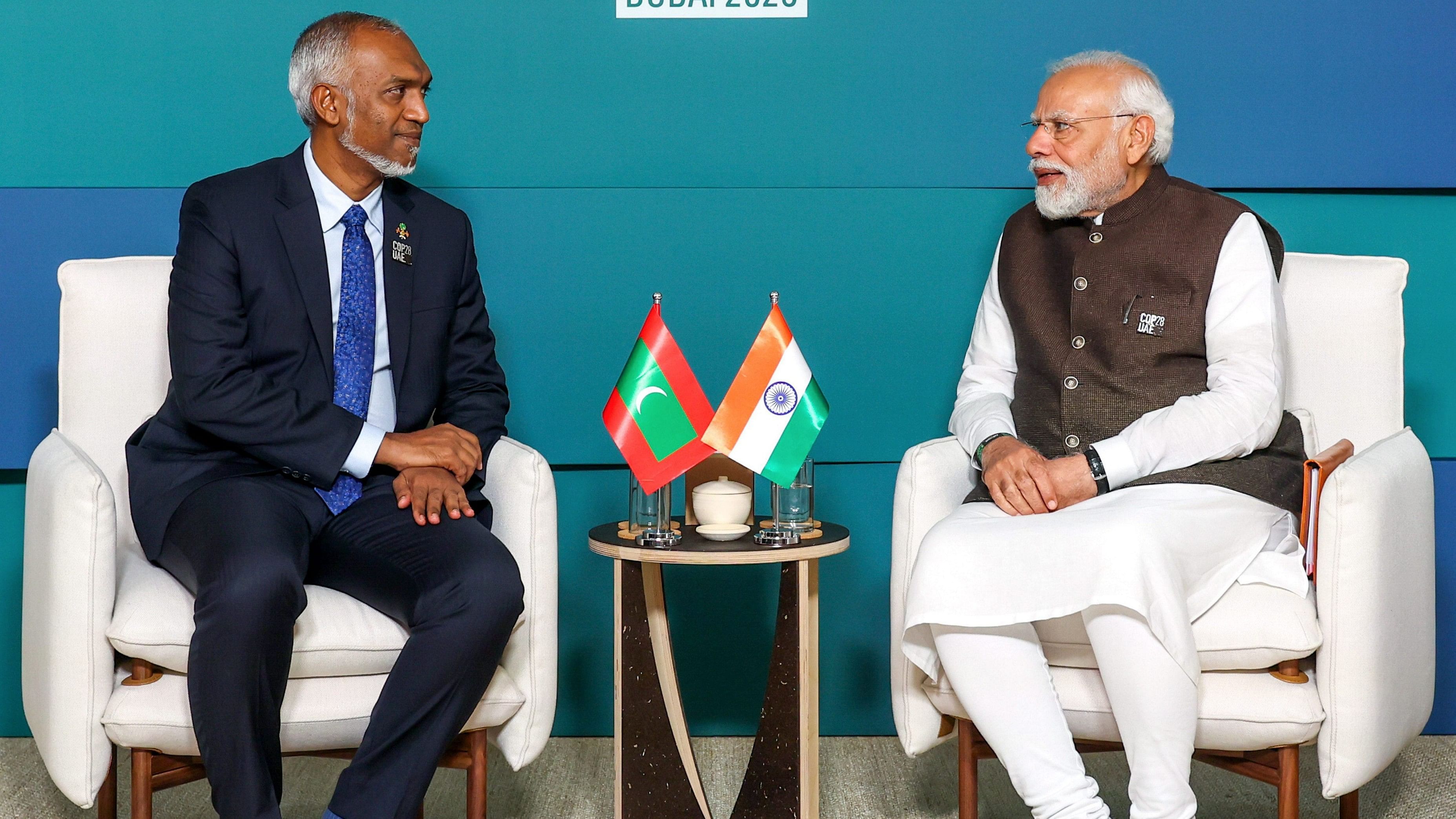
File Photo: Prime Minister Narendra Modi in a meeting with President of Maldives, Mohamed Muizzu during the COP28, in UAE, Jan 7, 2023.
Credit: PTI File Photo
India's social media spat with the Maldives, in which Indian celebrities led a call to boycott the Indian Ocean archipelago as a tourist destination, can prove to be a spectacular self-goal. The war of words began after Prime Minister Narendra Modi's visit to Lakshadweep, but there is a larger backdrop to it. Maldivian voters elected Mohammed Muizzu as their President last September, and he immediately asked Delhi to withdraw some 80-90 Indian military personnel from the Maldives. Both countries are engaged in talks to find a resolution to this issue. Muizzu choosing to visit China before Delhi has been seen, perhaps with not enough good reason, as his pro-China, anti-India tilt. It was against this background that Modi’s photographs extolling the beauty of Lakshadweep and asking Indians to embrace it as a tourist destination, which incidentally made no mention of Maldives, seem to have been cue enough for “patriotic” Indians to start dissing our Indian Ocean neighbour. Three Maldivian junior ministers added fuel with their intemperate comments in response, calling the Prime Minister names and talking down Indian beach resorts. The Muizzu government suspended the three ministers and distanced itself from their remarks, which was a clear signal that Male takes its relations with India seriously.
There the matter should have rested. But with Bollywood celebrities leading the charge, the issue has snowballed into #BoycottMaldivesTourism, with thousands of purported cancellations by Indians, and travel companies offering packages to Lakshadweep instead. Curiously, none had highlighted the allure of India's own Arabian Sea atolls earlier, as if the Prime Minister was the first to discover them.
More importantly though, the social media attack on Maldives' tourism industry, the mainstay of its economy, is reminiscent of the two Indian economic blockades of landlocked Nepal, in 1989 and more recently in 2015. Those two blockades did much long-term damage to India-Nepal ties. If there was one takeaway from those unfortunate episodes, it was that India does not gain by strong-arming its small neighbours. Going down the same road with Maldives is hardly in keeping with the spirit of SAGAR (Security and Growth for All in the Region) that Modi has spearheaded, or indeed with India’s stature. It may also hit people-to-people ties. The Maldives tourism industry itself employs an army of Indians. It’s no surprise then that in Beijing, where he was received warmly, Muizzu called China an “invaluable ally” and an “integral collaborator”, nor that he pointedly asked China to send more tourists to his country. India's other neighbours must be watching and taking away their own lessons. It begs the question if social media trolls unleashed by so-called “IT cells” have hijacked India's diplomacy. Delhi must rein in the social media war and let the External Affairs Ministry do its job.